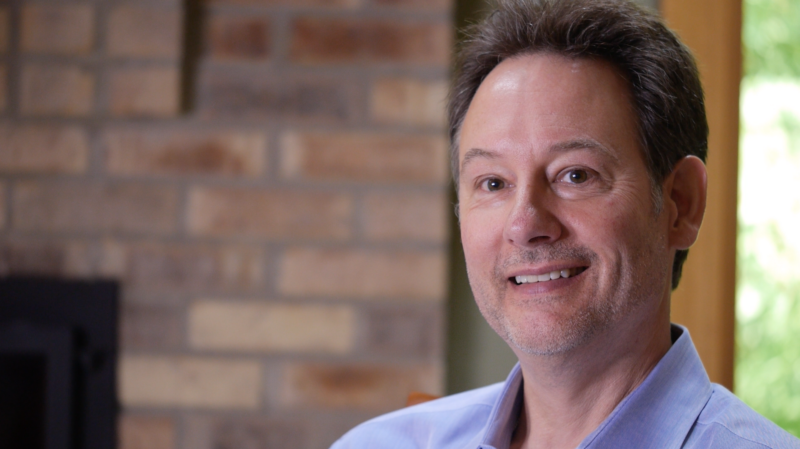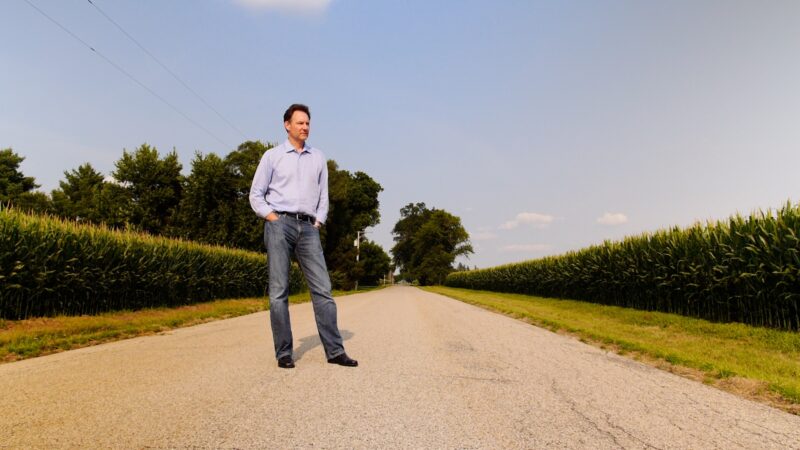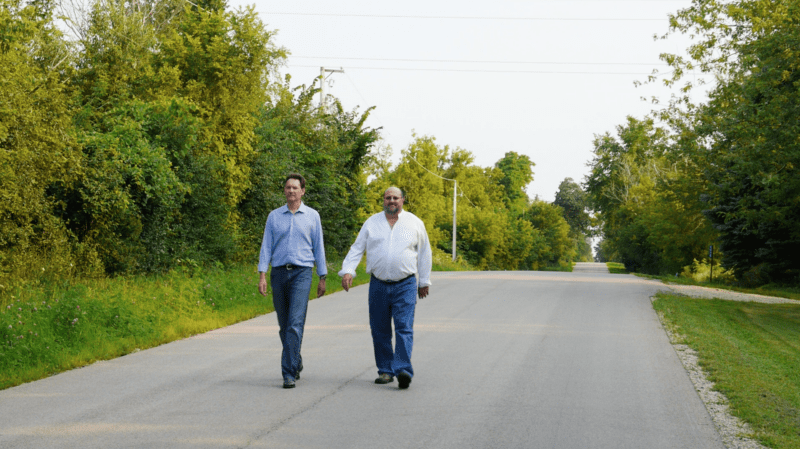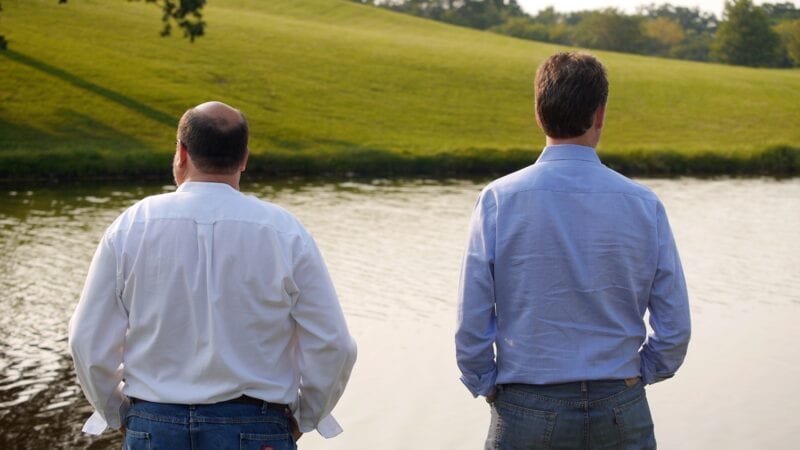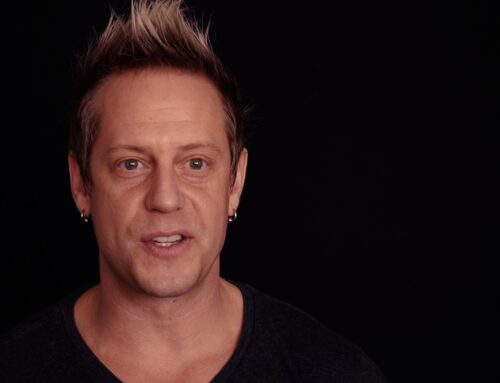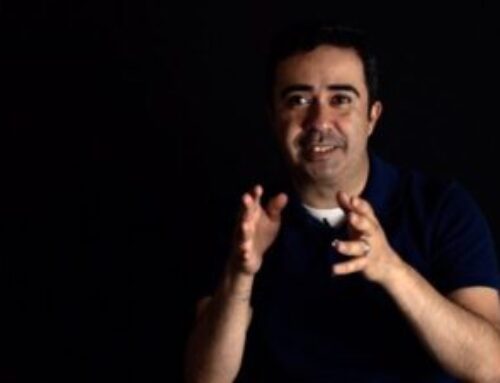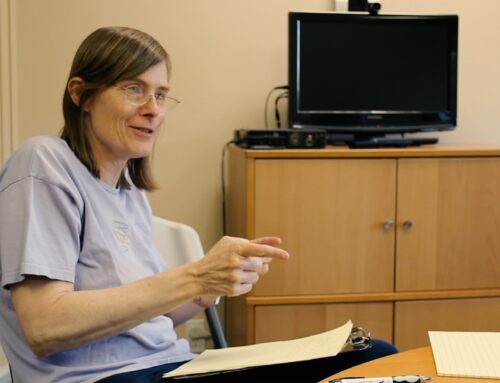KEVIN ELDRIDGE
As I said in a previous post, “I will always be grateful to Keven Eldridge for two reasons. First, was his willingness to share his journey with stuttering in my film. Secondly, is that he introduced me to his good friend Michael Retzinger (AKA Retz)…” When I think about Kevin, I also think about Michael. They have a strong friendship and an unwavering commitment to helping people who stutter.
Like Scott Palasik and Dale Williams, I first saw Kevin Eldridge speak at the ASHA Convention in 2011. He was part of the “Paths Toward Recovery from Stuttering” seminar. I was impressed by the introspection and honesty he had about his journey with stuttering.
When I went out to Woodstock, Illinois to interview him it was a truly enriching time. He and Retz really took the time to explain to me their point of view on stuttering therapy. It made a lasting impression on me and forever changed the way I thought about stuttering. Kevin said so many great things in his interview… The analogy he gives about walking the plank almost always garners an audible “ah ha” moment from audience members.
I see Kevin from time to time when he comes to visit in Los Angeles. He has become a friend as well as a trusted colleague.
“While we might not want to hear that “it is in our head”, much of it is. Avoiding situations only reinforces the avoidance. Face your fear.”
What has been the response from others about you in the film?
I have received comments such as, “I didn’t know you were an expert in stuttering.” and “I didn’t know that you stuttered.” These comments have led to some interesting discussions. The film itself has been very positively received by those I have shared it with. For many of them, their understanding of the struggles faced by those who stutter has increased significantly. Unfortunately, the response I had hoped for from the Oscar nominating committee has not materialized.
What was your favorite or most memorable part of the process of making the film?
Getting together with my best friend Michael Retzinger to share our thoughts with John about something that has defined who we are was incredible. I was impressed by how much time John gave us to talk. We spoke in my office, at my home, and on a lonely road in the country where I had ridden my bike many times. I still recall the deep emotions that were released during these discussions (by myself and Retz). John was somehow able to truly listen to us while filming us at the same time. People who stutter know that many people pay more attention to how we speak, than to what we are saying. John was listening to the message with his whole being. Any person who stutters would remember that… I did.
What has surprised you about the film since it was first presented?
While I had known it would be appreciated by the stuttering community, I am pleasantly surprised at how it has been embraced by all viewers from all over the world, whether they stutter or not. John’s unceasing drive to spread the word continues to increase the world’s understanding of a truly complicated disorder, giving a voice to those with much to say but who have great difficulty in saying it.
What’s changed in your life since we saw you in the film?
Much. At the time I was filmed, I was in private practice in Woodstock, Illinois working solely with people who stutter and their families. Two of my three daughters were living at home and one was in college. I am now a semi-retired “empty-nester” enjoying life to the fullest in the beautiful Pacific Northwest with a woman I am more in love with all the time. I am able to work in the public school system in Washington, allowing me to serve a broader population. I would still like to find a way to work with Mike Retzinger to spread our perspective on the best way to treat people who stutter.
What’s your relationship with stuttering now?
Until recently, my relationship with stuttering had been more distant than at any time in the past. That changed recently when John asked me to speak to his class while I was visiting my daughter who had just moved back to LA. As I spoke, as others listened, as others asked questions… I realized that my relationship with stuttering is like that with the rarest of friends– You can be apart for many years, but when you get together, it is as if you saw each other only yesterday. That night, I “remembered” what my clinician, Cheri Florance, told me almost 40 years earlier, “Kevin… you will have a great impact on the field of stuttering one day.” As I walked back to my car after that evening with John and his students, I knew that Retz and I have work to do. I have much to say that has the potential to impact the lives of those who stutter and their families. It is time to work on my relationship with stuttering again. Though stuttering has never been a friend, it has taught me a lot. It is time to share what I have learned.
What’s some advice for people who are on their journey with stuttering?
A) By the time you are a teenager or young adult, your fear of stuttering does more to maintain your stuttering than does the physiological predisposition to stutter. While we might not want to hear that “it is in our head”, much of it is. Avoiding situations only reinforces the avoidance. Face your fear.
B) Most of us can speak naturally when we are alone. But when we hear the door open and know someone is coming in the room, everything changes. Natural speech is quickly replaced with stuttered speech. Why is that? Each of us needs to figure out what just happened.
C) Talk to your siblings. When I was in my early 40’s, my older brother asked me with tears in his eyes if I thought that my stuttering was worse because of the fact he teased me on a few occasions when we were growing up. For 30 years he carried this pain. Is your sibling carrying a similar pain? Are you?
Purchase WHEN I STUTTER to watch
Kevin and 18 other compelling individuals
talk about their journey with stuttering.
